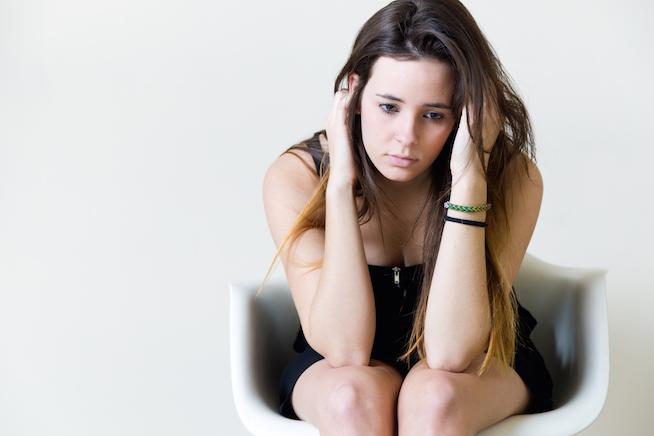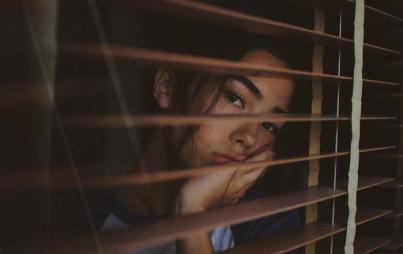
It's OK to say it out loud.
I spend so much time feeling like no one understands the awfulness of my depression that watching a stranger listen to the splintered recaps of my latest depressive episodes while showing unbridled empathy was refreshing and welcome.
Thanks to a number of stressful factors, I was sent to the Centre For Addiction and Mental Health (CAMH) emergency department recently at the "professional advice" (read: insistence) of my general physician. This all happened because I admitted to planning the care of my beloved cats in case I killed myself.
I spent eight hours in the waiting room with a patient wristband secured at the end of my newly-scarred arm, with no access to any of my possessions except a book, my journal, and my phone. Every exit was locked and permission was needed to leave, and if I wanted to step out for a smoke, I’d need accompaniment in order to ensure that I’d return. Though I was offered food, I did not accept any, despite having eaten nothing all day (anxiety makes me lose my appetite).
I sat for approximately five hours in the waiting room before I was seen. Then it was another three hours for me to be assessed by a physician and medical student before given a follow-up plan. After eight hours, I was finally discharged. While a gamut of emotions and thoughts ran though my head during that time, these are five that stood out the most:
1. People care. They really care. For some reason, I always doubt that my closest friends and family actually care about my well-being and mental health. And in my darkest moments, I let myself believe that I am a burden to everyone. I have seemingly unending support in both personal and professional settings, but I never realized that fully until I was being assessed and saw the sympathy, empathy, and genuine concern for me in the eyes of the two women (a physician and a medical student) at the facility. There’s this idea that strangers will not care for you as much as your loved ones, but I find sometimes it’s easier to accept comfort from a stranger — particularly one in a professional field — than it is to accept comfort from my loved ones.
2. Being open is a really good thing. I had seen my GP that morning for an unrelated appointment and, as always, she asked me how I was doing and, as always, I told her the honest truth. I told her the darkest thoughts that crossed my mind, the harm I inflicted on myself in those moments and admitted I was worried. She jumped into action and consistently thanked me for being open with her, which I found so bizarre, because who else am I going to be open about my health with if not my primary healthcare provider? Later at CAMH, the doctor who assessed me said the same thing, and even went on to say that it was a good sign to be open to talk about things and, additionally, being open to options to better my situation.
3. Empathy goes a long way. Unsurprisingly, my voice cracked and a few rogue tears spilled out during the assessment, but the thing that brings (now happy) tears to my eyes is thinking back on seeing the staff's faces show pure empathy. Aside from their sensitivity, simple comments like “It seems like you’ve been having a really rough time,” uncap my waterworks with surprising momentum. I spend so much time feeling like no one understands the awfulness of my depression that watching a stranger listen to the splintered recaps of my latest depressive episodes while showing unbridled empathy was refreshing and welcome. I feel like that memory is that little bit of hope I need to keep on keeping on.
4. Introspection is useful. I’ve always been introverted and introspective. I’m highly aware of my sense of being, both physically and mentally, and even in my most depressive moments, my voice of logic chatters on (albeit at a much lower volume). This has allowed me to decipher what is pure emotion (which is not to be trusted) and actual logical thought (to be trusted). I credit my introspection as being a big reason of why I haven’t committed suicide.
5. I would rather not be hospitalized after all. I used to believe that checking myself into a sanitarium for a couple of weeks would give me the mental freedom I needed, because I wouldn’t have to be preoccupied with everything my day-to-day life expects from me. I figured being taken care of in a psych ward and given time to collect myself would be like a mini-vacation for my mind. But sitting in that waiting room for the bulk of the day, literally not allowed to leave until I had seen a doctor, made me realize that the feeling of being mentally trapped makes me feel like I’m going insane, and is a far better alternative to being physically trapped.







